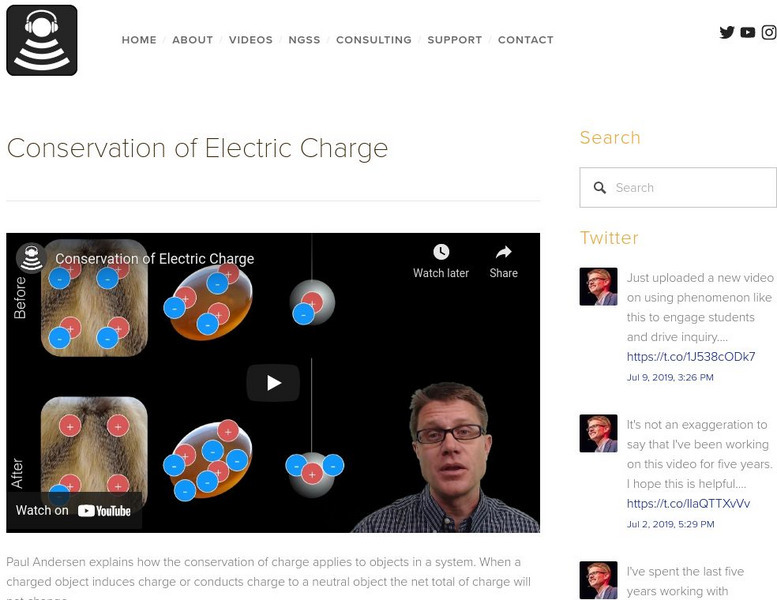DoodleScience
Charge, Current and Voltage
This brief video provides definitions for charge, current, and voltage and compares and contrasts these terms. The video also discusses coulomb, amps, and joules.
TED-Ed
How Batteries Work
Discover the fascinating technology that allows us to move around in our daily lives without being anchored to power cables. Learners trace the history of batteries and their ability to store charge back to the 1780s, and...
TED-Ed
The Science of Static Electricity
Add some spark to your physical science instruction with this short video on static electricity. Taking a look at the fundamental structure of atoms, this fun film explains how rubbing objects together can cause electrons to move...
Educreations
Bond Types
Bond some basic chemistry knowledge to the brains of your students with this short instructional video. After first identifying metals and non-metals on the period table, the presenter continues on to explain the types of materials...
Khan Academy
Khan Academy: Electrostatics: Electric Potential Energy
Get introduced to electrical potential energy by relating it to the concept of gravitational potential energy in this video. Learn how to calculate the amount of work it takes to move a charge through an electric field. [12:36]
University of Virginia
Uva Virtual Lab: Capacitor and a Resistor
In this simulation the cell will be used to charge a capacitor. The capacitor will then be used to operate a light bulb until the capacitor is discharged.
Bozeman Science
Bozeman Science: Physics: Conservation of Electric Charge
In this video, Paul Andersen explains how the conservation of charge applies to objects in a system. When a charged object induces charge or conducts charge to a neutral object, the net total of charge will not change. [6:07]
Khan Academy
Khan Academy: The Battery and Electromagnetism
The video lesson is from Khan Academy's physics library. The discovery of the battery, along with its connection to electromagnetism, are discussed.
Khan Academy
Khan Academy: Electric Field Direction
The direction of an electrical field at a point is the same as the direction of the electrical force acting on a positive test charge at that point. This video demonstrates how to solve electrical field problems. [12:35]
Khan Academy
Khan Academy: Triboelectric Effect and Charge
Learn the physics behind why a balloon clings to things after you rub it on a sweater in this video. [11:46]









